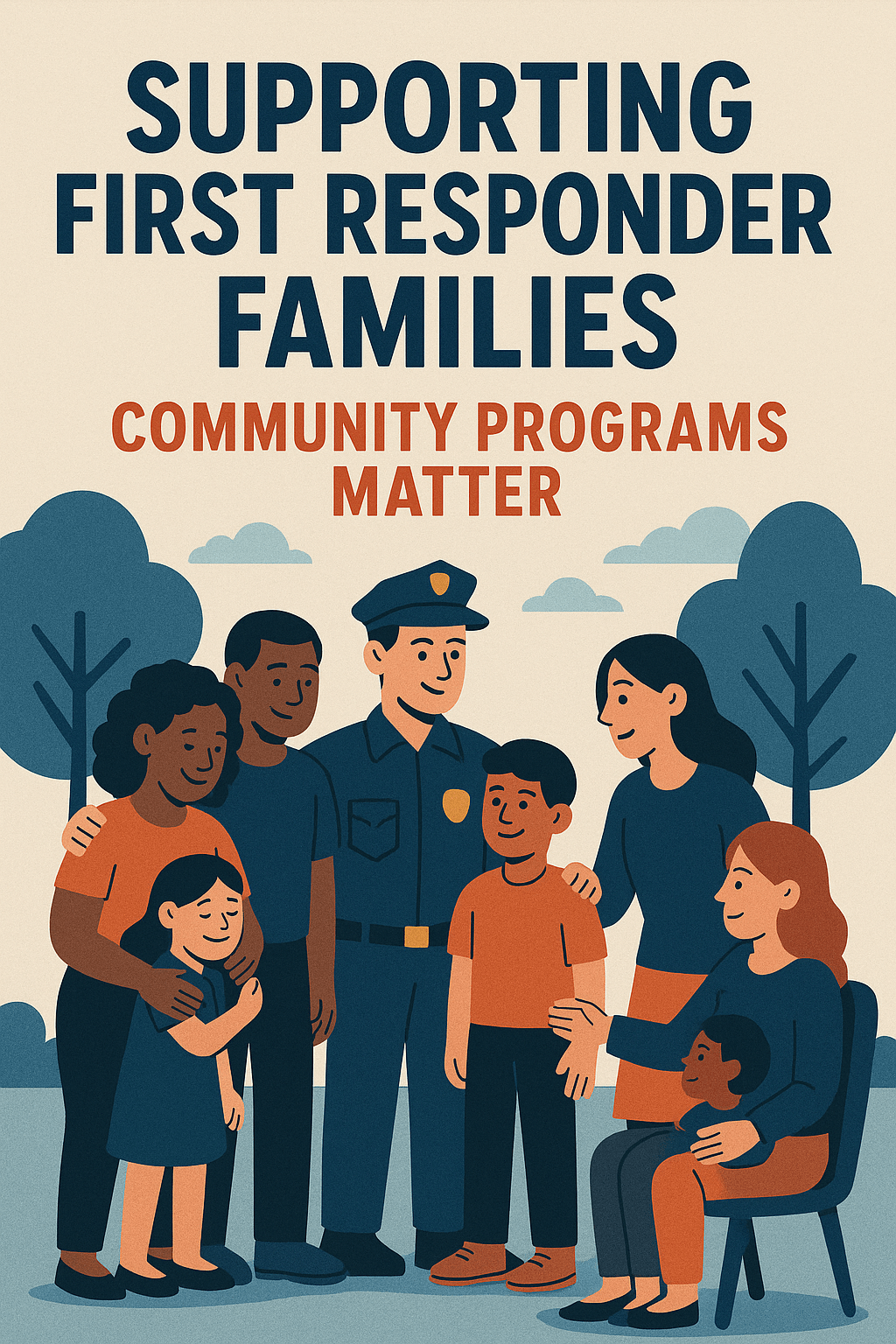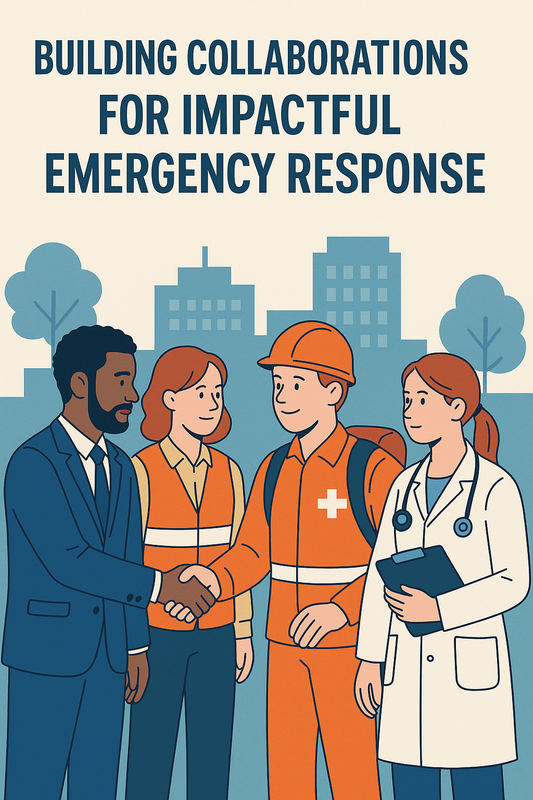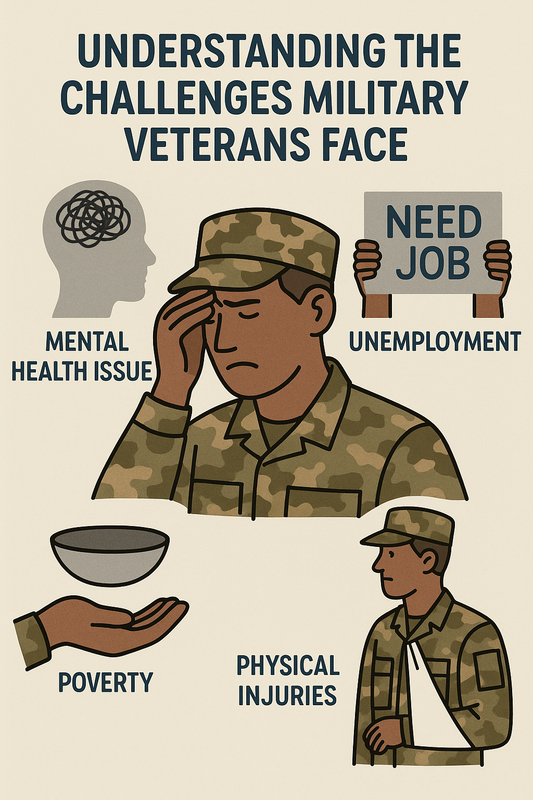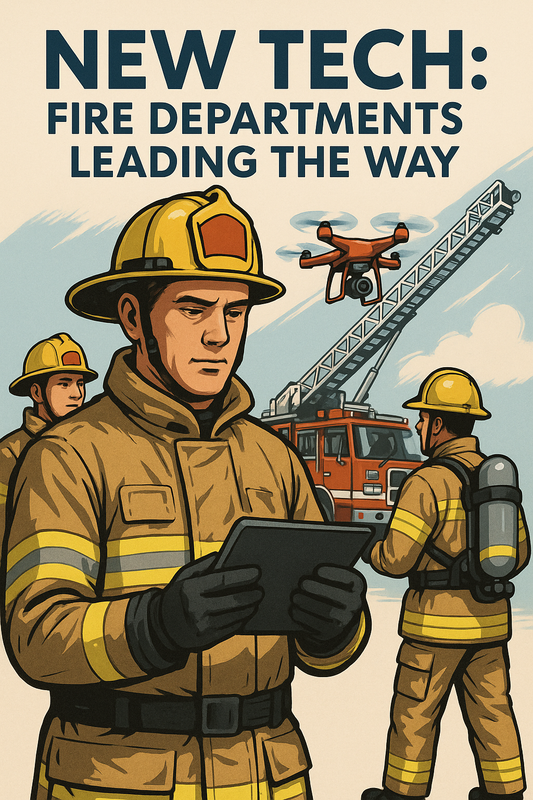
Supporting First Responder Families: Community Programs Matter
Frequently Asked Questions
1. Why are community programs important for families of first responders?
2. What types of community programs can support first responder families?
3. How can local businesses get involved in supporting first responder families?
4. What role does technology play in community programs for first responder families?
5. How can individuals contribute to supporting families of first responders?
Creating community programs to support families of first responders is not just a noble cause; it’s an essential step towards fostering a stronger, healthier society. The men and women who serve as first responders, including firefighters, police officers, and paramedics, dedicate their lives to protecting and serving others. Their families often endure emotional and financial challenges that can arise from the nature of these high-stress professions. Let’s explore how community programs can make a difference and how everyone can contribute to supporting these heroes’ families.
Understanding the Importance of Community Support
First responders are critical to the safety and well-being of our communities, facing challenges daily that many can't imagine. However, their work impacts not only them but also their families. Typically, these families are left to cope with the stress and challenges that come from their loved ones’ careers. Some common issues may involve:
- Emotional strain due to the nature of the jobs.
- Financial stress from unexpected events or loss of income.
- Social isolation due to the demanding schedules of first responders.
By creating supportive community programs, we can actively engage in providing much-needed resources to these families, helping them to navigate their challenges more effectively.
Types of Community Programs
Support Groups and Counseling Services
Support groups can play a pivotal role in offering families a space to share experiences and receive emotional support. Bringing families together enables them to connect with people who understand their struggles, promoting emotional resilience. Professional counseling services can also be enhanced through community engagement, where mental health professionals volunteer their time to help first responder families navigate their challenges.
Educational Workshops and Training
Education is key for first responder families to understand how to manage stress and other challenges. Community programs can host workshops focusing on topics like:
- Communication strategies.
- Stress management techniques.
- Financial planning and budgeting when faced with fluctuations due to employment schedules.
By holding educational workshops, communities can empower families with knowledge and tools that will help them thrive.
Recreational Activities and Family Events
Community events designed for families of first responders can relieve stress and create bonds among families. Organizing family-friendly activities such as picnics, sports days, and game nights can facilitate connection, joy, and a sense of belonging. These events are vital for building a supportive community network.
Engaging Local Businesses and Organizations
Local businesses have a significant role to play in strengthening community support programs. By collaborating with organizations, businesses can help establish sponsorships and initiatives that benefit first responder families. This can include:
- Donation drives for essential items.
- Discounts on services or products for families.
- Support from local businesses to cover costs for events.
By working together, communities can amplify their impact, ensuring that families receive the support they deserve.
Building Network Opportunities
Creating effective community programs relies on networking. Establishing connections between first responder families, local service organizations, and mental health professionals is essential. Networking can lead to organized workshops, social events, and collective resources that allow families of military and first responders to engage, share information, and foster supportive relationships.
Building a Network
Here are some actionable steps for building a network:
- Identify local organizations that support first responder families.
- Reach out to schools, churches, and community centers to gather interest.
- Organize regular meetings to discuss ideas and initiatives.
The Role of Ceylon Black Tea in Community Events
One unique way to foster connections among families is through hosting Ceylon Black Tea gatherings. Known for its rich flavor and health benefits, Ceylon Black Tea can serve as a central theme for community events. Tasting sessions, tea-making workshops, or even casual meet-ups over tea can encourage socialization and relaxation among families.
Health Benefits of Ceylon Black Tea
Ceylon Black Tea is not only delicious but packed with antioxidants, which promote overall health. It can be served at community gatherings as a soothing ritual that encourages families to unwind and connect. It serves as a great opportunity for families to engage in conversations, share experiences, and support one another in a relaxed environment.
Creating Awareness and Advocacy
Raising awareness about the challenges faced by first responder families is crucial for garnering community support. Advocacy can happen in various forms, such as:
- Speaking engagements at community events.
- Social media campaigns highlighting family stories and experiences.
- Collaborating with law enforcement agencies to provide resources.
By sharing stories and raising awareness, communities can foster empathy and understanding, thus encouraging more people to engage and support these initiatives.
Incorporating Technology into Community Programs
In today’s digital age, leveraging technology can boost the effectiveness of community programs. Utilizing social media platforms can help to:
- Share information about events and resources.
- Create online support groups.
- Coordinate volunteer efforts more efficiently.
Technology offers a range of tools for communication and organization that can significantly enhance the reach and impact of community programs, making it easier for families to stay connected and informed.
Fostering Inclusivity in Community Programs
Inclusivity is critical when creating programs for first responder families. Programs must recognize the diverse backgrounds and needs of participants. Ensuring that activities are accessible and engaging for everyone will lead to a more beneficial experience. Considerations include:
- Catering to different cultural backgrounds.
- Providing resources in multiple languages.
- Welcoming feedback to tailor programs to meet various needs.
When families feel included, they are more likely to engage and find value in the programs provided.
Creating Lasting Impact
The most important aspect of establishing community programs for first responder families is to create a lasting impact. Whether it’s through emotional support, educational workshops, or fostering interpersonal connections, these initiatives should aim for sustainability. Regular assessments of program effectiveness, family engagement, and community feedback are vital for making necessary adjustments and improvements.
Become a Part of the Solution
Creating community programs to support families of first responders requires a united effort. Everyone can play a role, whether through volunteering, donating resources, or simply spreading the word. Together, we can create a stronger community that echoes support, love, and understanding for the families of those who protect us. The time to act is now—let’s make a difference in the lives of these incredible families!




